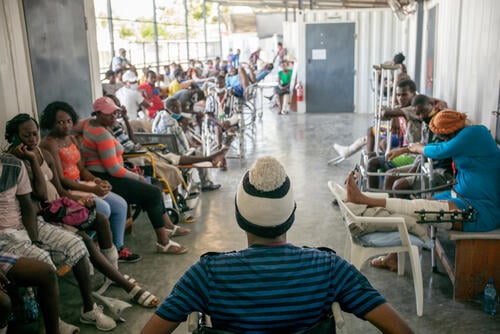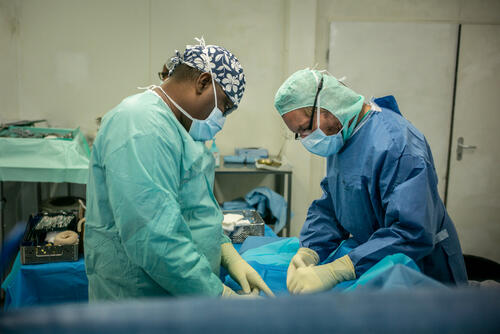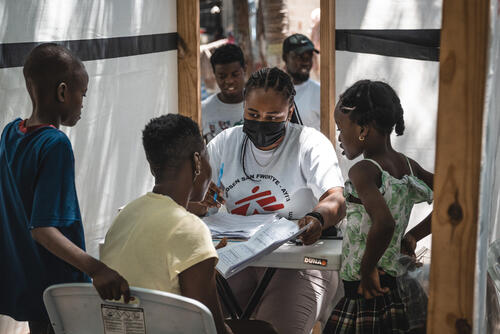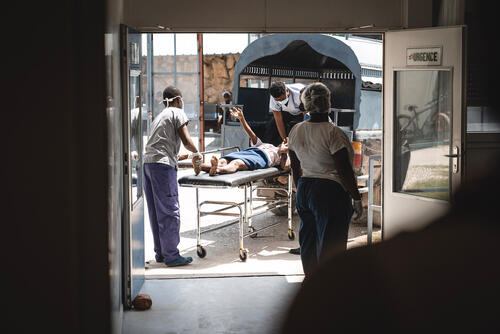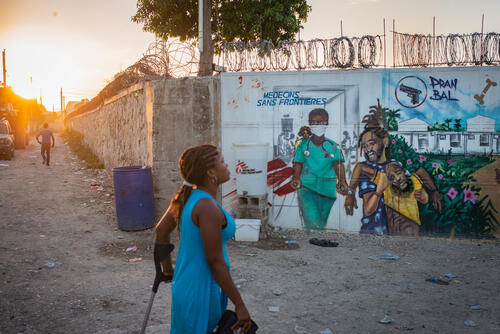The assassination of Haitian President Jovenel Moïse on 7 July in Port-au-Prince, Haiti, brought global attention to the country’s current political turmoil, but the country had already been in a state of profound crisis for many months. Stéphane Doyon, MSF Haiti programme manager, describes the deterioration in the humanitarian situation and the extraordinary level of violence now occurring.
What is the current situation in Haiti?
To describe everyday life, you have to borrow from the vocabulary of war. The capital, Port-au-Prince, is divided by several front lines. Entire neighbourhoods are under the control of armed groups with shifting territories. In dense and impoverished areas, the streets are barricaded, and in some areas, there are snipers shooting on sight. Clashes between gangs have forced thousands of residents to leave some neighbourhoods. In others, such as Cité Soleil, people find themselves trapped by the fighting.
The UN estimates that 18,000 people are displaced, accommodated either with relatives or in poorly adapted sites, such as schools or churches. This is a new phenomenon, with the majority of them having fled in recent weeks as the fighting escalates. The main access routes to Port-au-Prince are controlled by gangs and entering or leaving the city has become complicated. In addition to the fighting, there is a very high level of crime, with robberies, kidnappings and extortion.
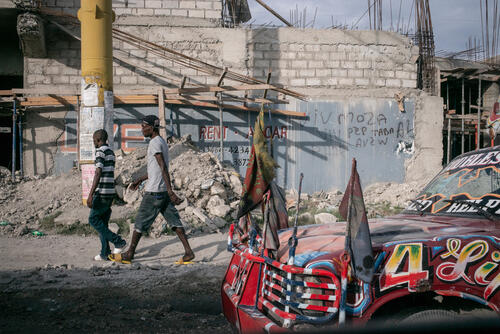
What is MSF doing?
In this context, there are many victims of violence, especially injured people. In our trauma hospital in Tabarre, in Port-au-Prince, MSF has provided care to more than 600 people wounded since the beginning of the year, the majority of whom are from the districts of Martissant, Cité Soleil, Croix des Bouquets or Bel Air, which is the site of particularly severe armed clashes.
Since April, we have had to deal with several waves of injured, which have prompted us to increase our hospitalisation capacity. There have been days when our teams have received as many as 20 patients. On average, more than 60 per cent of our trauma patients are victims of gunshot wounds or stab wounds. Separately, we continue to treat victims of sexual and gender-based violence in Port-au-Prince and Gonaïves.
How are MSF's activities affected by the situation?
While Haiti has been plagued by chronic violence for years, the situation has gradually deteriorated for over a year. Health facilities are no longer spared, and our medical activities have been disrupted by a succession of critical incidents. In February, an MSF hospital dedicated to treating severe burns in the Drouillard district of the capital had to be closed because the site was literally surrounded by fighting. The 20 or so patients still in hospital had to be transferred, and the hospital has yet to reopen. We just maintained an advanced medical post there to be able to stabilise and refer the wounded or victims of burns.
Last month, an explosion of violence in the Martissant neighbourhood put the staff of the MSF emergency centre, suddenly on the front line, to the test. For several days, the medical staff had to take care of the wounded while protecting themselves from stray bullets, and one of our ambulances was robbed. On 26 June, the facility was the target of direct fire, and was finally evacuated so as not to further expose patients and staff.
Beyond these extreme episodes, it is ordinary violence that threatens everyone. When we go out into the streets, our health workers, like the people, live in fear of stray bullets or robberies. An MSF employee who worked in Tabarre was murdered on 25 May by armed men, after he had finished his day at the hospital and was on his way home.
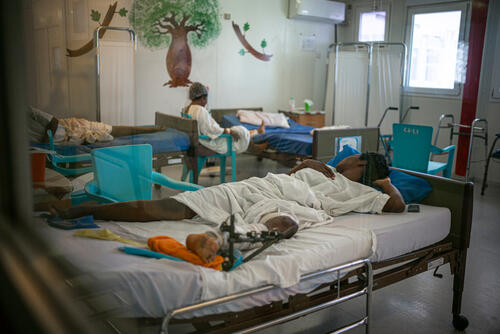
What are the effects on the healthcare system?
This permanent state of insecurity limits people’s access to healthcare. The healthcare system is already extremely unequal, with private healthcare available only to those who can afford it, while public health facilities lack essential resources.
In this context, it is a challenge to maintain medical activities. Staff and patients must be able to reach health facilities and return from them safely, but there is no guarantee that they can. At a time when we should expand our activities to meet the growing medical needs of people, including from an increase in COVID-19 cases, we are struggling to keep our facilities open.
Today, it is urgent to realise that Haiti is plunged into a situation of violence and total insecurity, coupled with a major health crisis. The assassination of the president adds uncertainty in a country that appears to be on the verge of chaos.



